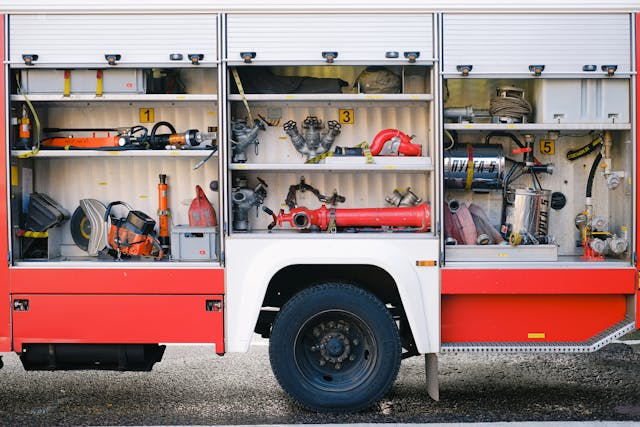Fire safety is an essential consideration for every household. While we often hope for the best, being prepared for emergencies is critical to ensuring the safety of our loved ones. One of the most effective ways to safeguard your family is by creating a comprehensive fire escape plan. Here’s a step-by-step guide to help you develop a plan tailored to your home and family.
Assess Your Home Layout
Begin by analysing the layout of your home. Identify all possible exits, including doors and windows, for each room. Ensure that everyone in the household knows the primary and alternative escape routes. For homes with multiple levels, consider investing in tools like fire escape ladders to provide a safe way out from upper floors.
Install and Maintain Fire Protection Equipment
Equipping your home with reliable fire protection equipment, such as smoke alarms, fire extinguishers, and fire blankets, is vital. Test your smoke alarms monthly and replace the batteries as needed. Fire extinguishers and blankets should be placed in easily accessible areas, such as the kitchen, and all household members should know how to use them properly.

Establish a Meeting Point
Designate a safe meeting point outside your home where everyone will gather in the event of a fire; this could be a mailbox, a tree in the front yard, or another easily identifiable spot. Having a clear meeting point helps ensure that everyone is accounted for quickly.
Practise the Escape Plan Regularly
Regular fire drills are essential to reinforce the plan and ensure that everyone knows what to do in an emergency. Practise both daytime and nighttime scenarios to account for different conditions. For added realism, include obstacles, such as blocked exits, to encourage creative problem-solving.
Teach Fire Safety Basics
Educate your family, especially children, about fire safety. Teach them to stay low to avoid smoke inhalation, check doors for heat before opening them, and never go back inside once they’ve exited. Reinforcing these basics can make all the difference during a fire.
Consider Special Needs
If you have elderly family members, young children, or individuals with disabilities in your household, tailor your fire escape plan to address their specific needs. Assign a family member to assist them during emergencies, and ensure that escape routes are easily accessible for everyone.

Keep Emergency Numbers Handy
Make sure everyone knows how to contact emergency services. Teach younger children how to call Triple Zero (000) and what information to provide. It’s also a good idea to have a list of emergency contacts near the phone or saved in everyone’s mobile devices.
Review and Update Your Plan
As your family grows or your home undergoes changes, revisit your fire escape plan to ensure it remains effective (regular updates will help your plan stay relevant and actionable).
Be Prepared, Stay Safe
Creating and practising a fire escape plan can provide peace of mind and significantly improve your family’s safety. Combining this with well-maintained fire protection equipment ensures you are ready to handle an emergency with confidence.By taking these steps now, you can minimise the risks and be better prepared to protect your family in the event of a fire. Remember, prevention and preparation are your best tools for ensuring safety at home.
















